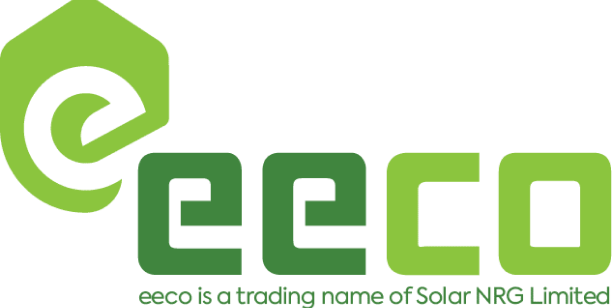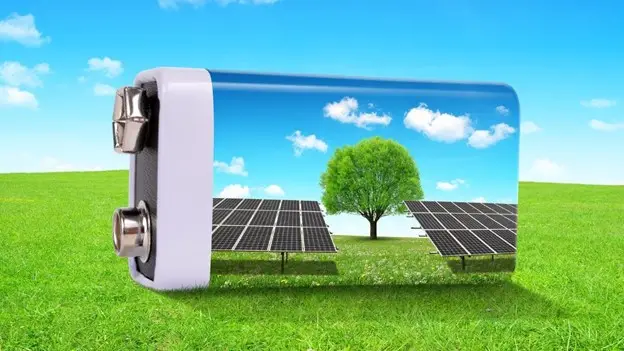What types of batteries are utilized by solar panels? What are the benefits? How do you choose the perfect one? Find the answers to your questions about solar batteries and how to select a solar battery for your home. Explore the many advantages of solar technology and the advised methods for picking the finest solar battery for a solar installation.
Types Of Solar Batteries
One of three basic formulations—lead-acid, lithium-ion, or flow batteries—are usually used to make solar batteries for domestic energy storage. While various battery types can be more cost-effective, lithium-ion batteries are generally the best for solar panels.
- Lithium Iron Phosphate Battery
DoD for lithium iron phosphate batteries is better than NMC. When charged under identical circumstances, lithium iron phosphate does not heat up as rapidly and does not risk thermal runaway. Once the solar battery is subjected to intense heat, a thermal runaway usually happens, which has devastating effects. A normal lithium nickel manganese cobalt oxide battery with a lifespan of 10+ years could also suffer thermal runaway if a car were to impact it. - Flow Batteries
Battery life would be greatly decreased if you use all of its power. A newbie to the solar battery market, flow batteries promise 100% DoD. This is one option to extend the lifespan of your batteries if you plan to use them frequently. Yet, most flow batteries use vanadium, a rather costly and rare metal with a 5 to 10 years lifespan. - Lead Acid
Off-grid solar power systems have used lead-acid batteries, a known technology, to a large extent. One of the lowest-priced choices, lead-acid batteries, have a short lifespan. 3–5-year average life span. You can usually find these batteries in your car, boat, or golf cart. - Lithium Nickel Manganese Cobalt Oxide Battery (NMC)
The most popular energy storage technology is the NCA battery. Often, it is lighter in weight and has a slightly shorter cycle life. 10-plus-year average life span lithium iron batteries’ ability to cycle refers to their primary value. Compared to lead-acid batteries, lithium-ion batteries have a higher lifespan cycle count. Assisting in smoothing the energy demand curve and providing ancillary services to the grid. You can assist in flattening the curve by saving your daytime energy production and using it at night when demand is much greater. For uses like the installation of solar panels, lithium-ion batteries are a great option. When your solar panels aren’t operating, supply energy and other ancillary services.

How Do Solar Battery Systems Function?
Energy is often kept in a normal home by solar panels. Shortfalls are filled by acquiring electricity from the grid and exporting available solar energy to the grid. A rooftop solar system and the battery can be installed together or as an addition to an already-existing rooftop solar system to help save money.
Several energy storage solutions are available with various options and capacities. Solar panels are a good option to operate home appliances, but they’re frequently used off-peak hours on a time-of-use rate when electricity is less expensive than during the day.
When a household’s energy needs exceed what the solar panels can provide, the stored energy in a solar-battery system is used. When the stored energy is out, grid electricity or another generation will fulfil household energy demands till solar generation is accessible the following day.
How To Pick a Solar Battery and What to Consider
Solar batteries are becoming common becsause they give extra energy that can be used after sunset or if clouds hide the sun. The time of use (TOU) rate, a flexible rate used by services when usage is high or low, can also be reduced.
When considering PV systems and the related solar batteries, it is essential to know how to pick the most suitable one for your solar energy requirements.
- Depth of Discharge (DoD)
A DoD makes solar batteries more effective and durable. A higher DoD allows you to use more of your solar battery’s energy before charging is needed. A 10-kWh solar battery, including an 80% DoD limitation, shouldn’t be used for more energy than 8 kWh as this can shorten the battery’s lifespan. - Battery Capacity
A battery’s capacity is how much energy and long it can keep electricity. Consider how often energy is used, how long it is used effectively, and the usual utility costs to establish daily energy needs. You can set daily energy usage and evaluate the size of the PV system before picking a solar battery. - Warranty
Based on the battery type, companies provide a variety of warranties. Compared to more costly lithium-ion batteries, which are protected for upwards to 10 or more years, lead-acid batteries often have short warranty duration. - Price
One vital factor to consider when buying a solar battery is its cost. While picking a solar battery, you must balance price and quality. Solar batteries can cost between £2,428.28 and much over £16,188.59. - Lifespan
Batteries that take longer to break in and achieve their maximum potential often last longer than those with high initial capacities. The battery can stop holding a charge after years of use, based on the battery’s condition. - Round-Trip Performance
The power capacity safely retrieved from a battery is known as round-trip efficiency. The kind of battery that is highly efficient and affordable should be considered. Get the maximum energy unit available when looking for the finest solar battery. - Power
Maximum and regular delivery performance and the company’s ability should all be considered when picking up a solar battery. Batteries of all sizes can power the necessary devices, while smaller capacity but high-power batteries can briefly power the entire house. Ask your solar installation for a capacity and rating balance to decide what’s best.

Advantages Of Solar Batteries
- Use your energy to its fullest.
- Better Reliable Power Supply.
- Decrease the carbon footprint of your house.
- There isn’t any noise pollution.
- Decreased Electricity Costs.
Conclusion
A household battery system can be charged using power from the grid and electrical energy typically obtained from a renewable electricity source, including rooftop solar. After becoming stored in the battery, the energy can be used to operate home electrical systems and appliances.
It is essential to have a solar battery that can store energy for your home since the sun doesn’t continuously shine. There are numerous sorts to pick from, but perhaps you’ve got a clearer notion of what you’re searching for now.


